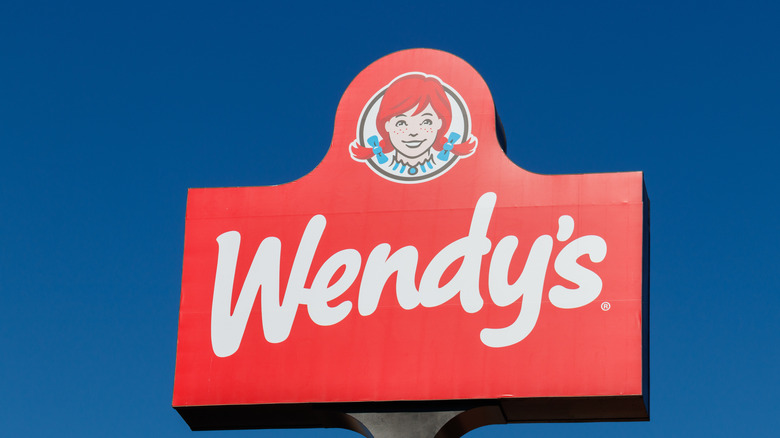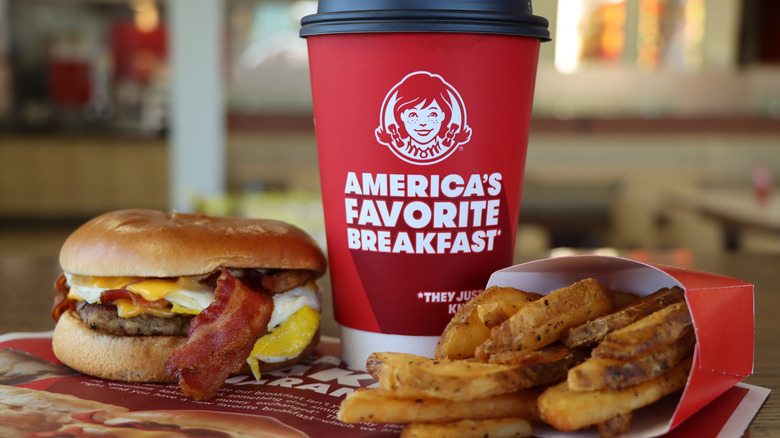The Real Reason Wendy's Is Opening So Many Ghost Kitchens
With all of the ordering out and dining in we've had to do in the last 14 months or so, it's no surprise that ghost kitchens have become an established part of the country's food landscape. This seems particularly relevant for quick-service establishments since, as The Takeout points out, ghost kitchens are compact and their staffs don't really need to bother with the extras necessary to deliver on customer service. If a restaurant chain plans things properly, ghost kitchens can achieve quick turnaround times.
So it makes sense that fast-food chain Wendy's has decided to partner with REEF – which is known in the restaurant world for operating ghost kitchens – to develop as many as 700 of them throughout three markets: the United States, Canada, and the United Kingdom. Roughly 50 of these units are expected to open this year, and the rest are slated to be rolled out over the next four years (via QSR).
Wendys is hoping that these ghost kitchens can reach neighborhoods where a standalone restaurant will have difficulty operating. They are also meant to offer more limited menus which carry the chain's more popular items. Because this arrangement effectively puts REEF in the position of being a Wendy's franchisee, the company will be tasked with both kitting out and staffing the kitchens. REEF will be paying Wendy's a royalty fee of about 6%, which is around one-and-a-half times what other franchisees fork out (via Business Insider).
Wendy's pandemic operations were greatly supported by its delivery opreations
Wendy's latest partnership seems logical, considering that it has delivery to thank for keeping it afloat during the dark days of the coronavirus pandemic. Its saving grace: Wendy's new breakfast menu, which was launched just before the pandemic began wreaking havoc on the fast-food breakfast sales. Carl Loredo, the chain's chief marketing officer explained, "We started with the idea of saving consumers from folded egg sandwiches that were being served in the marketplace" before it became about creating a mouthwatering alternative to whatever it was people were eating for breakfast at home. And because of the pandemic, Loredo said, people's breakfast habits changed, too: "We had geared up to get going at 6:30 [A.M.], but then the time period for breakfast began to shift later and later" (via The Takeout).
During an earnings call, Wendy's CEO Todd Penegor projected that each ghost kitchen has the potential to make as much as $1 million in yearly sales (via Business Insider). Small wonder, then, that Wendy's President, International and Chief Development Officer Abigail Pringle cited the company's need to grow within the delivery sphere as a driver for the partnership. Pringle said the brand needed to "look for opportunities beyond our traditional restaurant formats, especially in dense urban areas. This partnership with REEF is testimony to our ambitions, the potential we see to grow our beloved brand, and our quest to reach more customers in more ways" (via QSR).

